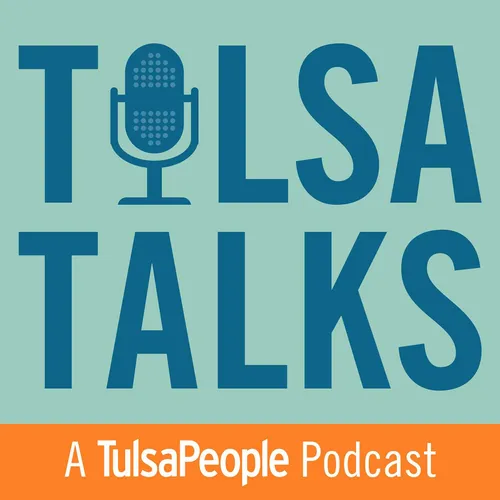Sing loud, sing proud – Branjae Jackson
- Author
- Langdon Publishing
- Published
- Wed 18 Nov 2020
- Episode Link
- None
Welcome to Tulsa Talks presented by Tulsa Regional Chamber. I’m your host Tim Landes.
My guest on this episode is Branjae Jackson, commonly referred to as Branjae or the Count Tutu singer who has a lot of energy and has a lot of fun.
She’s a force to be reckoned with on the stage and is growing into being one in the activism world.
Earlier this year, the Minneapolis police killing of George Floyd launched the biggest protest movement in global history, and Branjae took part locally and at the national stage.
She’s featured in our November issue in a story about her trip to Washington D.C. to celebrate the 57th anniversary of Martin Luther King Jr.’s “I Have a Dream” speech. It was a speech that preceded the civil rights act by two years.
As you’ll hear in this conversation, she hasn’t always been politically charged to make change. She didn’t always think about using a microphone as a bullhorn to call for racial justice and criminal justice reform, but she’s embraced the opportunity and is charging forward. We discuss when and how she realized she needed to learn more and do more.
The pandemic postponed live music in Tulsa, but Branjae has continued to work hard on career. She talks about how the shutdown forced her to explore new avenues like acting and dancing in the new movie “Finding Carlos” which is a family friendly adaptation of the Nutcracker. She discovered she could reach a much larger audience online and could have fun playing small shows on people’s porches.
Branjae earned the 2020 Black Wall Street Music Award for Best Female Artist and has had four nominations for Tulsa Music Awards, as well as a nomination for Best Social Justice Video in the Independent Music Awards, which honor Indie music projects from around the world.
In addition to fighting for racial justice, Branjae also speaks out against domestic violence, something we talk about in this conversation. In 2019, she co-directed the music video for her song “Street Light,” which tells the story of surviving domestic violence and highlights community support for victims. Billboard Magazine premiered the project, and Branjae published an op-ed on Afropunk — a national arts and culture website dedicated to promoting social awareness — about how “Street Light” came to be. We have included that song at the end of this episode.
I really enjoyed having this conversation with Branjae and getting to know her better. I’ve long admired her musical talents and the way she can lure in the audience with her performance, and now I have even more respect for her as a strong voice in our community wanting to make Tulsa an even better place.
OK, let’s get this going.
This is Tulsa Talks with Branjae.
